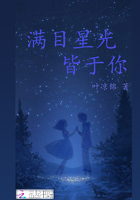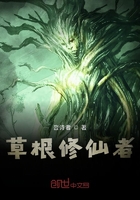"One, two, three," and the artist clapped his hands. Katusha, hardly restraining her laughter, changed places with Nekhludoff, behind the artist's back, and pressing his large hand with her little rough one, and rustling with her starched petticoat, ran to the left. Nekhludoff ran fast to the right, trying to escape from the artist, but when he looked round he saw the artist running after Katusha, who kept well ahead, her firm young legs moving rapidly. There was a lilac bush in front of them, and Katusha made a sign with her head to Nekhludoff to join her behind it, for if they once clasped hands again they were safe from their pursuer, that being a rule of the game. He understood the sign, and ran behind the bush, but he did not know that there was a small ditch overgrown with nettles there. He stumbled and fell into the nettles, already wet with dew, stinging his bands, but rose immediately, laughing at his mishap.
Katusha, with her eyes black as sloes, her face radiant with joy, was flying towards him, and they caught hold of each other's hands.
"Got stung, I daresay?" she said, arranging her hair with her free hand, breathing fast and looking straight up at him with a glad, pleasant smile.
"I did not know there was a ditch here," he answered, smiling also, and keeping her hand in his. She drew nearer to him, and he himself, not knowing how it happened, stooped towards her. She did not move away, and he pressed her hand tight and kissed her on the lips.
"There! You've done it!" she said; and, freeing her hand with a swift movement, ran away from him. Then, breaking two branches of white lilac from which the blossoms were already falling, she began fanning her hot face with them; then, with her head turned back to him, she walked away, swaying her arms briskly in front of her, and joined the other players.
After this there grew up between Nekhludoff and Katusha those peculiar relations which often exist between a pure young man and girl who are attracted to each other.
When Katusha came into the room, or even when he saw her white apron from afar, everything brightened up in Nekhludoff's eyes, as when the sun appears everything becomes more interesting, more joyful, more important. The whole of life seemed full of gladness. And she felt the same. But it was not only Katusha's presence that had this effect on Nekhludoff. The mere thought that Katusha existed (and for her that Nekhludoff existed) had this effect.
When he received an unpleasant letter from his mother, or could not get on with his essay, or felt the unreasoning sadness that young people are often subject to, he had only to remember Katusha and that he should see her, and it all vanished. Katusha had much work to do in the house, but she managed to get a little leisure for reading, and Nekhludoff gave her Dostoievsky and Tourgeneff (whom he had just read himself) to read. She liked Tourgeneff's Lull best. They had talks at moments snatched when meeting in the passage, on the veranda, or the yard, and sometimes in the room of his aunts' old servant, Matrona Pavlovna, with whom he sometimes used to drink tea, and where Katusha used to work.
These talks in Matrona Pavlovna's presence were the pleasantest.
When they were alone it was worse. Their eyes at once began to say something very different and far more important than what their mouths uttered. Their lips puckered, and they felt a kind of dread of something that made them part quickly. These relations continued between Nekhludoff and Katusha during the whole time of his first visit to his aunts'. They noticed it, and became frightened, and even wrote to Princess Elena Ivanovna, Nekhludoff's mother. His aunt, Mary Ivanovna, was afraid Dmitri would form an intimacy with Katusha; but her fears were groundless, for Nekhludoff, himself hardly conscious of it, loved Katusha, loved her as the pure love, and therein lay his safety--his and hers. He not only did not feel any desire to possess her, but the very thought of it filled him with horror.
The fears of the more poetical Sophia Ivanovna, that Dmitri, with his thoroughgoing, resolute character, having fallen in love with a girl, might make up his mind to marry her, without considering either her birth or her station, had more ground.
Had Nekhludoff at that time been conscious of his love for Katusha, and especially if he had been told that he could on no account join his life with that of a girl in her position, it might have easily happened that, with his usual straight-forwardness, he would have come to the conclusion that there could be no possible reason for him not to marry any girl whatever, as long as he loved her. But his aunts did not mention their fears to him; and, when he left, he was still unconscious of his love for Katusha. He was sure that what he felt for Katusha was only one of the manifestations of the joy of life that filled his whole being, and that this sweet, merry little girl shared this joy with him. Yet, when he was going away, and Katusha stood with his aunts in the porch, and looked after him, her dark, slightly-squinting eyes filled with tears, he felt, after all, that he was leaving something beautiful, precious, something which would never reoccur. And he grew very sad.
"Good-bye, Katusha," he said, looking across Sophia Ivanovna's cap as he was getting into the trap. "Thank you for everything."
"Good-bye, Dmitri Ivanovitch," she said, with her pleasant, tender voice, keeping back the tears that filled her eyes--and ran away into the hall, where she could cry in peace.















